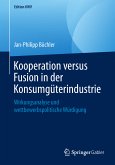This book is the first book that provides comprehensive economic analysis of cross-border outsourcing by Japanese manufacturing firms based on microdata. Previous literature on many other countries has often been constrained by limited data availability about outsourcing, but research contained in this book exploits unique firm-level data and directly tests theoretical hypotheses derived from new firm heterogeneity trade models. Productivity, capital-labor ratio and R&D intensity are examined at the firm level. While rich empirical results in this book convince us how powerful the orthodox economic theory is in understanding Japanese firms, detailed firm-level findings, combined with accessible and concise overviews of Japanese international trade, are widely informative for international economists, experts of Japanese society, business strategists for offshoring, and policy makers in both developed and developing economies. This book further discusses how boundaries of Japanese firms, traditionally sheltered by language and cultural barriers, are affected by outsourcing decisions simultaneously crossing national borders and firm boundaries. The interpretations of Japanese characteristics in outsourcing have deep implications for understanding drastically changing Japanese business amid globalization.
Dieser Download kann aus rechtlichen Gründen nur mit Rechnungsadresse in A, B, BG, CY, CZ, D, DK, EW, E, FIN, F, GR, HR, H, IRL, I, LT, L, LR, M, NL, PL, P, R, S, SLO, SK ausgeliefert werden.









